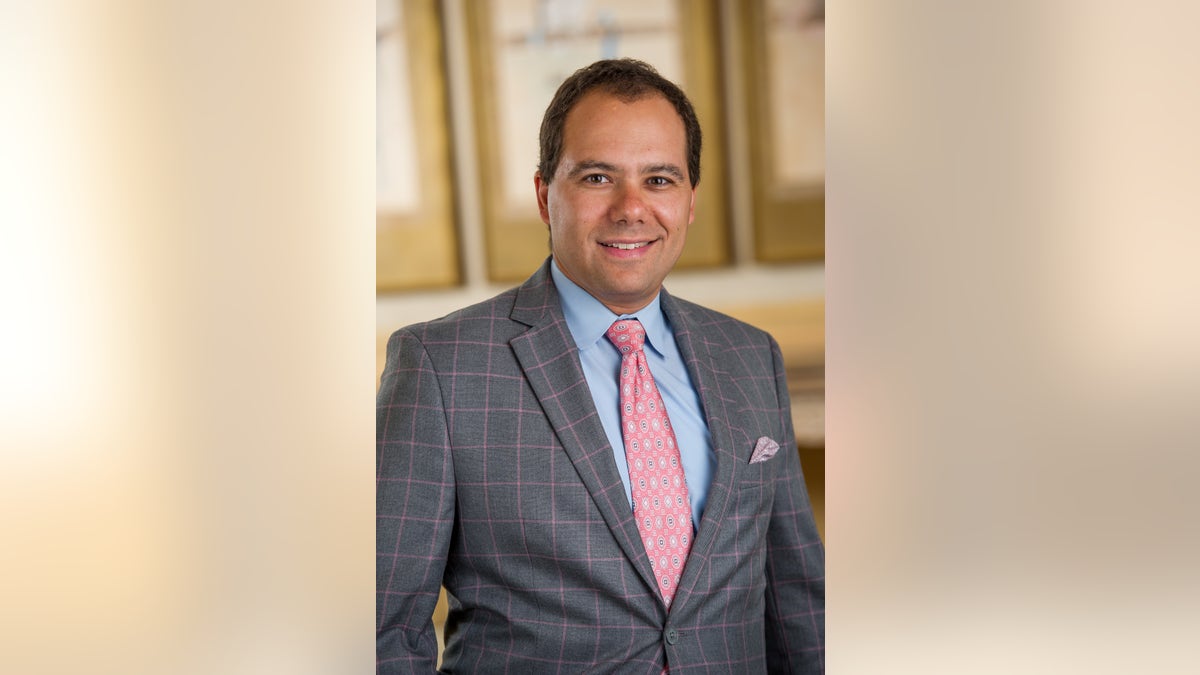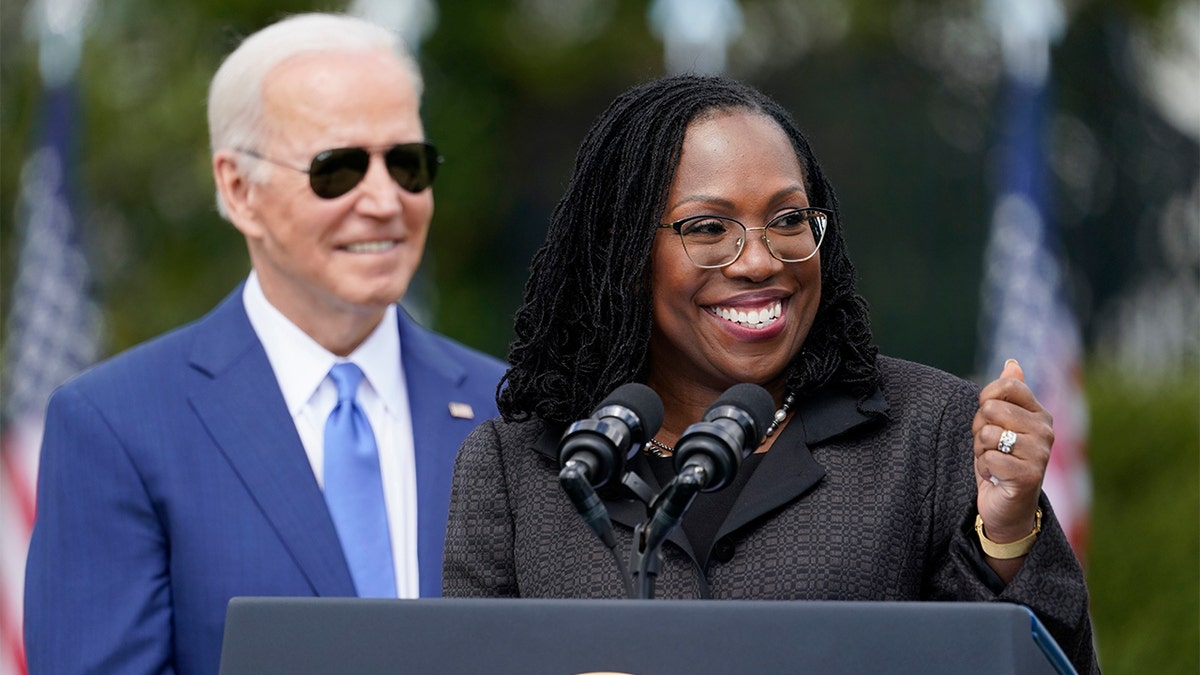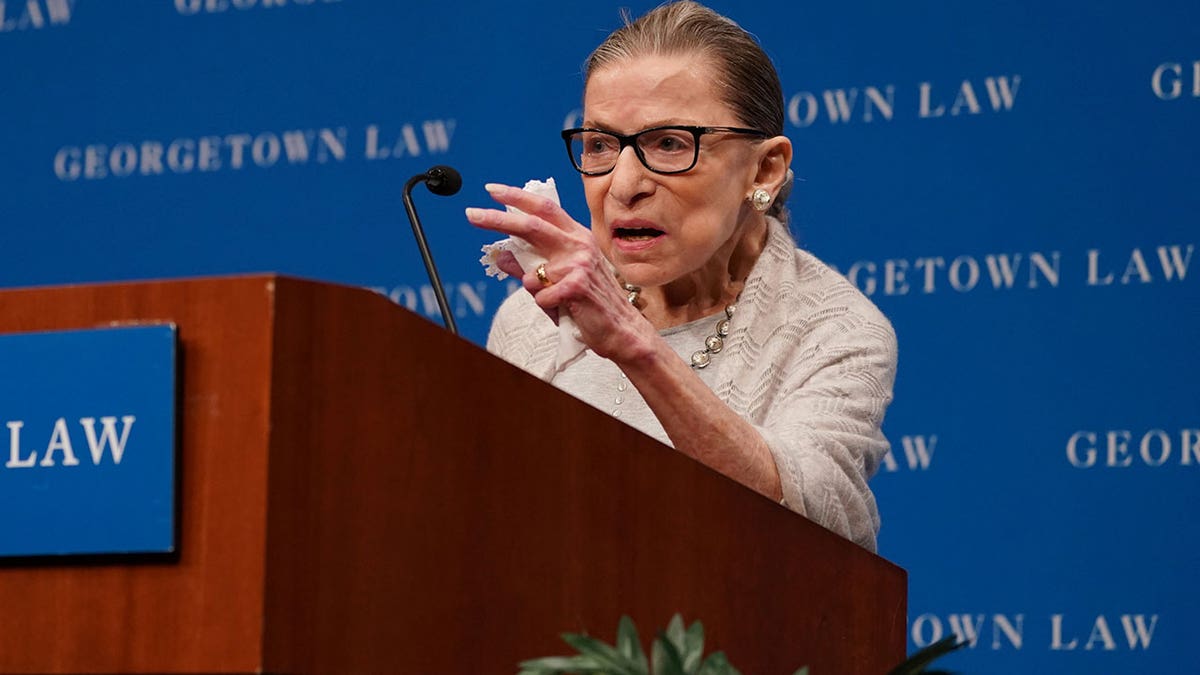Ilya Shapiro: Abortion debate is being used to rile up the Democrat base
'Supreme Disorder' author discusses Biden's comments on abortion and the consequences that could face the leaker of the SCOTUS draft opinion.
Ilya Shapiro, who was at the center of a prolonged debate over cancel culture and campus intolerance, resigned from his Georgetown Law Center position Monday shortly after being reinstated from a lengthy leave.
Fearing in his scathing resignation letter he'd have a never-ending target on his back for violating "progressive orthodoxy," Ilya Shapiro officially stepped down as Executive Director of the prestigious law school's Center for the Constitution. He departs a place where he never really got started without fond memories.
"Georgetown is not a place that values intellectual diversity, freedom of speech, tolerance, respect, good faith," he told Fox News Digital on Monday. "A place that excludes dissenting voices, that undermines equal opportunity. It's not a place that anyone who dissents in any way from prevailing orthodoxies can thrive."
He said the partnership with Georgetown would never have worked out, even if he'd never sent the poorly received tweet criticizing President Biden's pledge to choose a Black woman for the Supreme Court in January. He'd hoped to pivot from his think tank work at the libertarian-leaning Cato Institute to working with an educational institution, but he said political intolerance made that impossible.

Ilya Shapiro stepped down from his Georgetown position with a scathing resignation letter on Monday.
"What I've learned is that in the long term or the medium term, that was not going to be possible. If my tweet hadn't happened, something [else] would have happened through commentary on Supreme Court affirmative action in the fall, something. It's such a den of vipers," he said. "It's such an intolerant place that now I see it would not have worked out, which is too bad."
The senior lecturer and constitutional scholar had been on leave since February over his tweet hammering Biden over his Supreme Court pledge; the then-incoming Georgetown lecturer took heat for fretting that Biden would pick a "lesser Black woman" rather than his preferred choice, Obama-appointed Judge Sri Srinivasan. He apologized for inartful language and told Fox at the time he merely meant that he didn't want candidates for high office to "be restricted by race and gender," but a left-wing social media and student mob of criticism demanded his termination and derided him as a racist.
Georgetown Law Center Dean William Treanor said the school would investigate whether he violated "anti-discrimination" policies, and in a message to students said Shapiro had used "demeaning language." Shapiro was left in limbo for months before being cleared on what he called in his resignation letter a "jurisdictional technicality," as he was deemed not officially an employee yet.
After reading the report from the Office of Institutional Diversity, Equity, and Affirmative Action (IDEAA), Shapiro concluded working at Georgetown after its lengthy probe was "untenable."
"You told me when we met last week that you want me to be successful in my new role and that you will ‘have my back,’" Shapiro wrote in his resignation letter to Treanor. "But instead, you've painted a target on my back such that I could never do the job I was hired for, advancing the mission of the Center for the Constitution."
Shapiro took issue with Treanor's earlier statement about the controversy, writing that "no reasonable person acting in good faith could construe what I tweeted to be 'objectively offensive.'"

President Biden listens as Judge Ketanji Brown Jackson speaks during an event on the South Lawn of the White House in Washington, Friday, April 8, 2022, celebrating the confirmation of Jackson as the first Black woman to reach the Supreme Court. (AP Photo/Andrew Harnik) (AP Photo/Andrew Harnik)
"Only those acting in bad faith to get me fired because of my political beliefs would misconstrue what I said to suggest otherwise," he added about his statement about Biden's potential pick; the president would go on to appoint Ketanji Brown Jackson, who was confirmed in April.
He said the IDEAA office had completely mischaracterized the meaning of his original comments, as he had never said that Black women could not be on the Supreme Court, and he also took exception to the IDEAA standard that he could violate the school's anti-harassment policy over not considering what the report called the "'purpose or effect' of a respondent's conduct."
"According to this theory, the mere fact that many people were offended, or claimed to be, is enough for me to have violated the policies under which I was being investigated," Shapiro wrote. "Although there was no formal finding of a violation because of the procedural fact that I wasn't an employee when I tweeted and so not subject to these policies, so long as some unstated number of students, faculty, or staff claim that a statement ‘denigrates’ or ‘show[s] hostility or aversion' to a protected class, that's enough to constitute a violation of Georgetown antidiscrimination rules," he wrote.
LGBTQ ADVOCATE DEMANDS BILL MAHER'S CANCELLATION BY HBO, SAYS COMEDIAN HAS ‘GONE TOO FAR’
Shapiro laid out several hypotheticals he believed would run afoul of the rules he'd live under if he lectured at Georgetown or offered his opinions, and also included examples of left-wing academics at the school who had not been punished for incendiary language, such as Professor Carol Christine Fair in 2018 calling for the castration of Supreme Court nominee Brett Kavanaugh's defenders.
He concluded Georgetown had created a "hostile work environment" and left him no choice but to resign, ending a saga with wide-ranging campus free speech implications.

U.S. Supreme Court Justice Ruth Bader Ginsburg delivers remarks during a discussion hosted by the Georgetown University Law Center in Washington, D.C., U.S., September 12, 2019. (REUTERS/Sarah Silbiger.)
"It's definitely a chilling effect," he said. "That was Georgetown's point in handling this case as it did."
In a statement to Fox News Digital, a Georgetown spokesperson didn't directly address Shapiro's letter but defended the law school's policies.
CLICK HERE TO GET THE FOX NEWS APP
"Georgetown urges members of our community to engage in robust and respectful dialogue. Our speech and expression policy promotes free and open inquiry, deliberation, and debate and does not prohibit speech based on the person presenting ideas or the content of those ideas, even when those ideas may be difficult, controversial or objectionable," the spokesperson said. "While we protect speech and expression, we work to promote civil and respectful discourse. In reviewing Mr. Shapiro’s conduct, the University followed the regular processes for members of the Law Center staff."









































